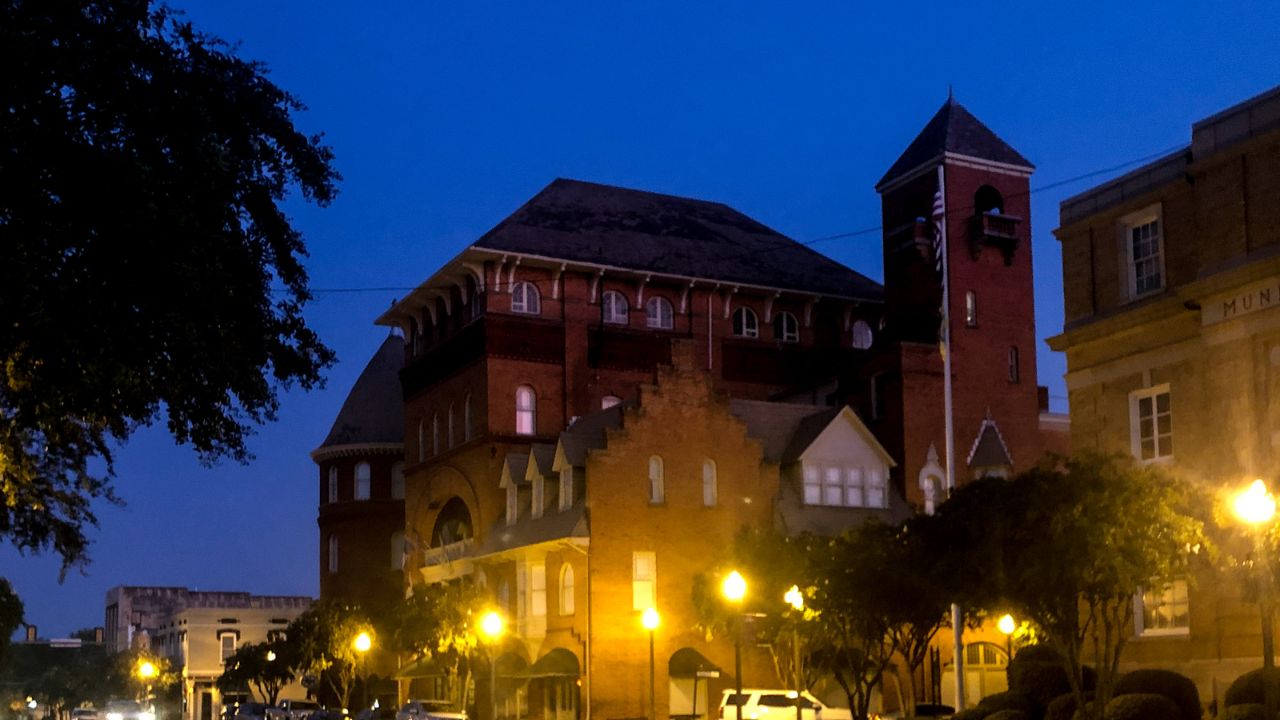Georgia, a state brimming with historical significance, vibrant culture, and natural wonders, is not without its share of pressing challenges. Among them are poverty, crime, unemployment, and educational disparities. This article aims to rank several cities in Georgia based on four key indicators: poverty rate, crime rate, unemployment rate, and educational attainment. The data used for this assessment is sourced from the latest available information as of April 2023.
12. Macon
Macon, situated in central Georgia and serving as the Bibb County seat, is the state’s largest city. Its population stands at approximately 153,000 people, and it grapples with a poverty rate of 25.8%, nearly double the national average. Macon also contends with a staggering crime rate of 64.9 incidents per 1,000 residents, surpassing the national average by over threefold. The city’s unemployment rate stands at 5.1%, higher than the state average of 3.3%. Educational attainment levels in Macon are notably low, with only 23.4% of adults holding a bachelor’s degree or higher.
11. Albany
Albany, the eighth-largest city in Georgia and the county seat of Dougherty County, is home to around 72,000 residents. The city grapples with a poverty rate of 31.6%, more than twice the national average. Additionally, Albany faces a high crime rate of 54.8 per 1,000 residents, again more than double the national average. The unemployment rate in Albany is 5.4%, surpassing the state’s average of 3.3%. Educational attainment is also a concern, with only 19.6% of adults holding a bachelor’s degree or higher.
10. Atlanta
Serving as both the capital and the largest city of Georgia, Atlanta boasts a population of approximately 506,000 residents. However, it contends with a 21% poverty rate, exceeding the national average of 12.8%. The city’s crime rate stands at 49.9 incidents per 1,000 residents, nearly twice the national average. Atlanta’s unemployment rate is 4%, slightly higher than the state average. On the educational front, 51.8% of adults in Atlanta hold a bachelor’s degree or higher, although disparities exist among racial and ethnic groups.
9. Savannah
Savannah, Georgia’s oldest city and the county seat of Chatham County, is home to roughly 144,000 residents. The city wrestles with a poverty rate of 22%, surpassing the national average. Its crime rate stands at 48 incidents per 1,000 residents, almost double the national average. The unemployment rate in Savannah is 4%, slightly above the state average. Educational attainment is a concern, with only 26% of adults holding a bachelor’s degree or higher.
8. Columbus
As the second-largest city in Georgia and the county seat of Muscogee County, Columbus is home to around 195,000 people. The city contends with an 18% poverty rate, higher than the national average. Its crime rate is 47 incidents per 1,000 residents, nearly double the national average. Columbus’ unemployment rate is 4%, slightly above the state average. On the educational front, only 24.6% of adults hold a bachelor’s degree or higher.
7. Augusta
Augusta, the third-largest city in Georgia and the county seat of Richmond County, boasts a population of approximately 197,000 residents. However, the city grapples with an 18% poverty rate, exceeding the national average. Augusta’s crime rate stands at 46 incidents per 1,000 residents, almost twice the national average. The unemployment rate in Augusta is 4%, slightly above the state average. Only 22% of adults in Augusta hold a bachelor’s degree or higher.
6. Warner Robins
Warner Robins, located in central Georgia and serving as the county seat of Houston County, is home to roughly 77,000 residents. The city faces a poverty rate of 15.4%, surpassing the national average. Its crime rate stands at 45.5 incidents per 1,000 residents, almost double the national average. The unemployment rate in Warner Robins is 3.9%, slightly higher than the state average. On the educational front, only 23.4% of adults hold a bachelor’s degree or higher.
5. Valdosta
Valdosta, a city in southern Georgia and the county seat of Lowndes County, has a population of about 56,000 residents. The city grapples with a poverty rate of 28.6%, more than double the national average. Valdosta’s crime rate stands at 44.9 incidents per 1,000 residents, almost double the national average. The unemployment rate in Valdosta is 4.1%, exceeding the state average. Educational attainment is also a concern, with only 22.9% of adults holding a bachelor’s degree or higher.
4. Athens
Athens, located in northeastern Georgia and serving as the county seat of Clarke County, is home to roughly 127,000 residents. The city faces a staggering poverty rate of 32.6%, more than double the national average. Its crime rate stands at 44 incidents per 1,000 residents, almost double the national average. Athens’ unemployment rate is 3.8%, slightly higher than the state average. On the educational front, 40.5% of adults in Athens hold a bachelor’s degree or higher, though disparities exist among different racial and ethnic groups.
3. East Point
East Point, situated in Fulton County just south of Atlanta, is home to about 35,000 residents. The city contends with a poverty rate of 25%, almost double the national average. East Point also grapples with an exceptionally high crime rate of 69 incidents per 1,000 residents, more than three times the national average. Its unemployment rate is 4%, slightly higher than the state average. Educational attainment levels are low, with only 19% of adults holding a bachelor’s degree or higher.
2. College Park
College Park, also in Fulton County just south of Atlanta, is home to approximately 15,000 residents. The city faces a poverty rate of 28%, more than double the national average. It also contends with a remarkably high crime rate of 72 incidents per 1,000 residents, more than three times the national average. The unemployment rate in College Park is 4%, slightly higher than the state average. Educational attainment levels are low, with only 18% of adults holding a bachelor’s degree or higher.
1. Union City
Union City, situated in Fulton County just south of Atlanta, is home to about 21,000 residents. The city grapples with a poverty rate of 29%, more than double the national average. Astonishingly, Union City also faces the highest crime rate in Georgia, with a staggering 82 incidents per 1,000 residents, more than four times the national average. The unemployment rate in Union City is 4%, slightly higher than the state average. Educational attainment levels are low, with only 17% of adults holding a bachelor’s degree or higher.
Conclusion
In conclusion, many of Georgia’s cities, particularly those in metropolitan areas around Atlanta and along the Interstate-75 corridor, are confronted with a multitude of challenges, including high poverty rates, elevated crime levels, increased unemployment, and limited educational opportunities. Addressing these issues will require comprehensive and strategic solutions that tackle their root causes and not just the symptoms. Potential strategies include investments in economic development, public safety, social services, and infrastructure to uplift these communities.

